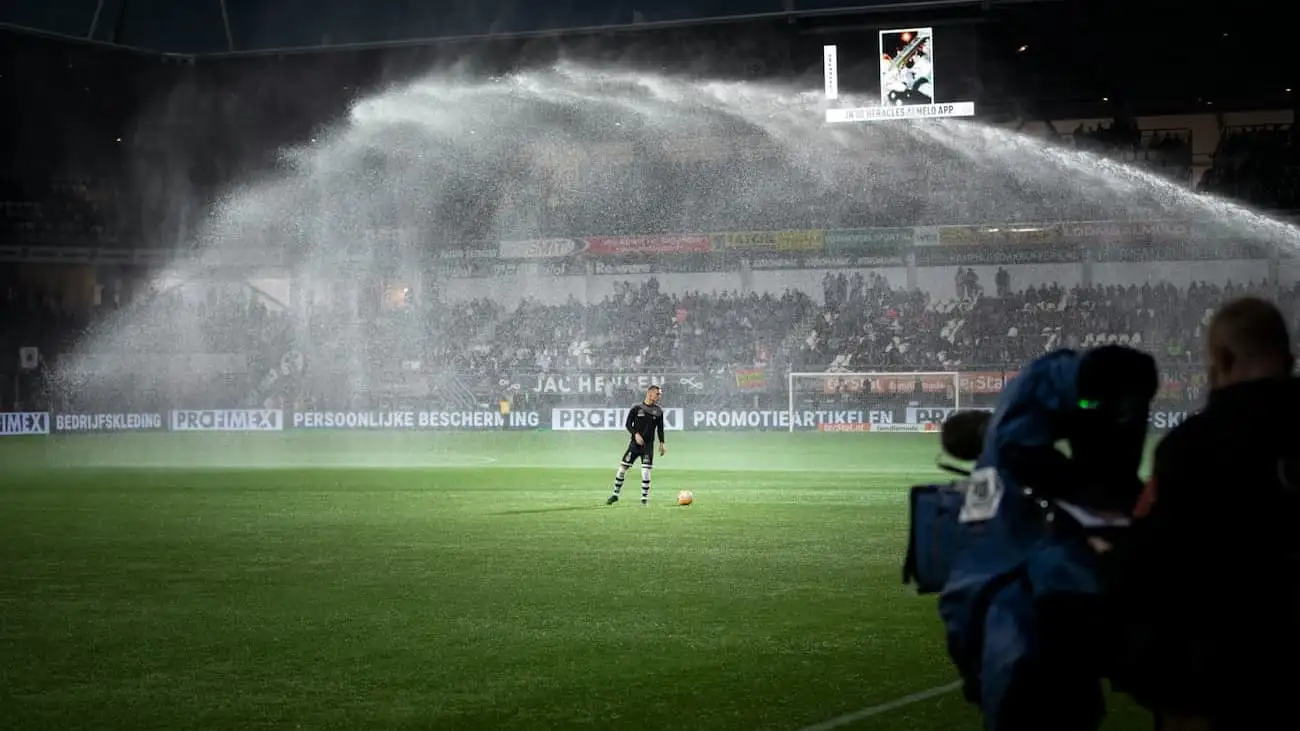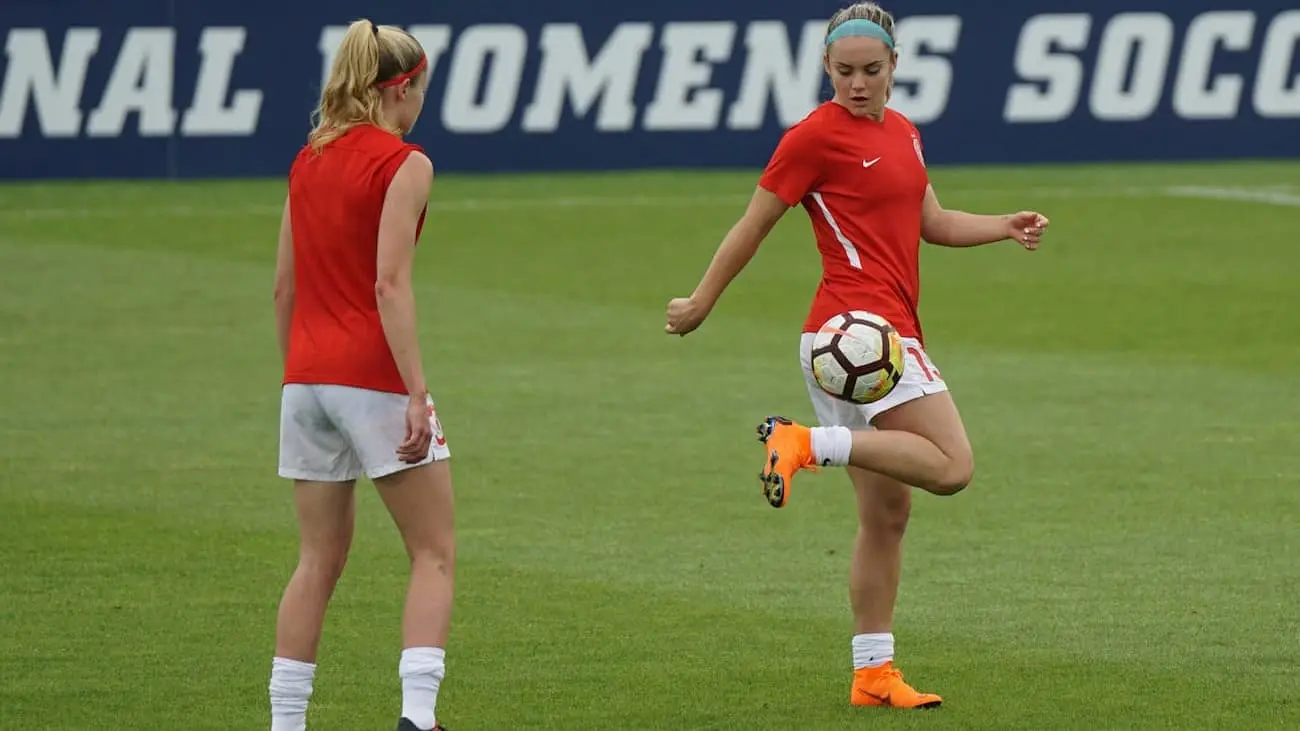THE SPORTS SPONSORING MANUAL
Thiago Calderaro
Football clubs, the heart of the world's favourite sport, serve not only as a home for players, coaches, and fans but also as grand stages for corporate communication and marketing. With nearly 36 million active athletes in Germany and 28% of the population as members of sports clubs, they provide an ideal platform for companies to showcase their brands and demonstrate social responsibility. But how can a club position itself as a coveted partner for corporate sponsorship?
Brand Awareness and Image Transfer
A clearly defined brand essence and a strong, positive identity are your first sales arguments to potential sponsors. In short: What does the club stand for? Answer the "Why?", "What?", and "How?". Companies aim to increase their visibility and build a positive image. Therefore, your club should clearly communicate its values, achievements, and the unity of its community. Whether it's tradition, youth development, or social commitment, highlight how partnering with your club can enhance the sponsor's brand.
Sales Promotion through Fan Engagement
Clubs with a passionate fan base are invaluable to sponsors. Demonstrate how your club can highlight a sponsor's products or services. Whether through branded merchandise, exclusive fan events, or product samples on match day, your ability to creatively support sales promotions can be decisive.
Networking – More than just Football
Convey that your club also offers a platform for business networking. Whether VIP events, business clubs, or hospitality offerings around match days and sporting events, show that you can create an environment where companies can forge valuable contacts and nurture business relationships.
Recruitment through Enthusiasm for Sport
With the skills shortage as a pervasive issue, football clubs are strategically positioned to act as partners in companies' HR strategies. Your club should highlight how the joint sponsoring experience can reach potential new employees who share the values and passion for the sport.
Demonstrating Social Responsibility
Sponsors are looking for partners who can help make their commitment to society visible. Your club should emphasize how it contributes to the local community and what social projects it supports or initiates. A credible commitment to socially relevant issues such as integration, education, or health increases your attractiveness as a partner. Beware of sportswashing!
Activation of Sponsorships
To realize a successful partnership between sports clubs and companies in the context of sponsorship, football clubs must understand how to position themselves attractively and actively utilize the various marketing channels. This involves applying creative and effective strategies that go beyond traditional logo presence and jersey sponsorship. With individual and innovative sponsorship packages, significant added value can be generated for both the club and the sponsor. The following marketing options offer diverse approaches:
Out of Home (OOH) & Print: The use of OOH advertising spaces around the sports ground, stadium, or in club buildings offers sponsors visible presence. Clubs can get creative by offering unique, brand-specific installations on the premises, innovative digital advertising spaces, or naming rights to the stadium. Despite digital transformation, placement in target audience-specific print media remains a valuable tool for sponsors. Clubs can enable their sponsors to feature in club magazines, flyers, or event programmes to reach a specific and often highly engaged readership. To maximize effectiveness, clubs should avoid cluttering surfaces with too many elements, as a clear and simple design achieves greater impact. A clear call-to-action is crucial to motivate viewers to take action. The quality of images plays a significant role in professional appearance. Target audience-specific communication and optimization for various devices are essential to effectively reach the audience and ensure display across all screens. By considering these aspects, football clubs and their sponsors can ensure that their analogue and digital advertising efforts attract the desired attention and achieve the intended effect.
Media Campaigns: By integrating sponsors into targeted media campaigns, clubs can boost the sponsor's brand awareness and product sales. This can be achieved through banners on the club website, blog articles, newsletters, or jointly produced video content that directly engages fans. Media campaigns are often divided into two stages. In the first stage, the focus is on increasing brand awareness, using campaign elements to spark interest in a particular topic, product, or service. In the subsequent stage, the aim is to generate conversions. Incorporating sponsors into podcasts that address the members can offer an intimate and credible form of communication. Clubs could develop their audio formats or use existing channels to convey targeted messages. The first stage concentrates on elevating brand recognition by utilising campaign components to generate interest in a specific topic, product, or service. Subsequent actions aim at driving conversions. Monitoring the campaigns' KPIs is essential to measure success.
Social Media: A club's presence on social media provides an ideal platform for sponsors to target young and online-savvy audiences effectively. Content reflecting both the sponsor's and the club's values can create authentic connections. Companies must carefully assess which products or services they wish to promote within specific target groups. Does the club have a relevant follower base on the appropriate channels? Once the suitable channels are identified, the key lies in employing creative content. A mix of imaginative concepts, targeted communication, and a campaign optimised for the club's followers can yield remarkable success.
Surveys: Utilising digital surveys opens up an innovative avenue for clubs to diversify sponsorship activities and strengthen ties with members and the regional community. Engaging in surveys on relevant and socially significant topics such as health, education, and sustainability allows football clubs and their sponsors to enhance visibility while simultaneously gathering important data on the fan base and current issues. Partnering with brands as presenting sponsors of surveys enables authentic and committed brand presentation, boosting brand recognition in the short term and positively influencing the sponsor's image over the long term. Additional incentives like competitions can also directly generate leads, distribute product samples, and position sponsors as active participants in societal discourse.
Events: Hosting or sponsoring events allows the sponsor's brand image to be enhanced through the positive and emotional atmosphere of cultural and sporting events. Sponsors can form an emotional connection between the club's event and the audience by obtaining naming rights to the event. With a booth on-site and targeted actions for fans, the sponsor's products or services can be showcased. Furthermore, tournament planner platforms such as CoachingArea offer the opportunity to place the sponsor's logo with a direct link to the conversion target. Thus, the club leads participating teams and fans to the sponsor with a single click on the link or by scanning a QR code at home tournaments.
Conclusion
The partnership with sponsors is a dance where both sides can lead. By presenting your club as a valuable tool for achieving corporate goals, you become the go-to place for companies that see more in sports marketing than just advertising spaces. It's crucial to work on equal terms and share common values. Let your club become the spokesperson for brands wanting to engage in sports, and benefit from a win-win relationship that extends far beyond the pitch.
Sources
1. https://blog.sportplatz-media.com/mit-sport-sponsoring-deine-unternehmensziele-erreichen
5. https://blog.sportplatz-media.com/digitale-umfragen-im-sport
Continue Reading
This might also interest you:







